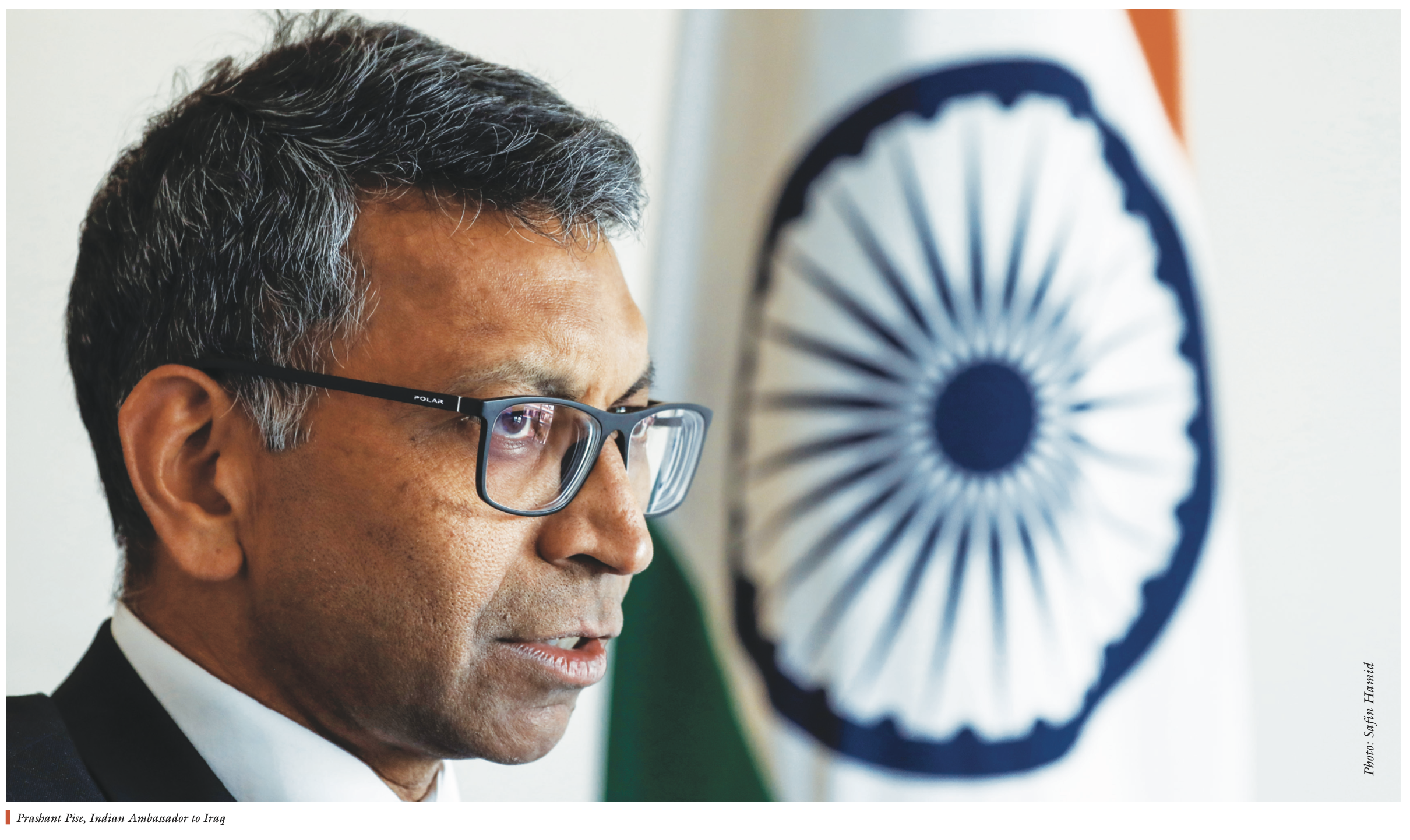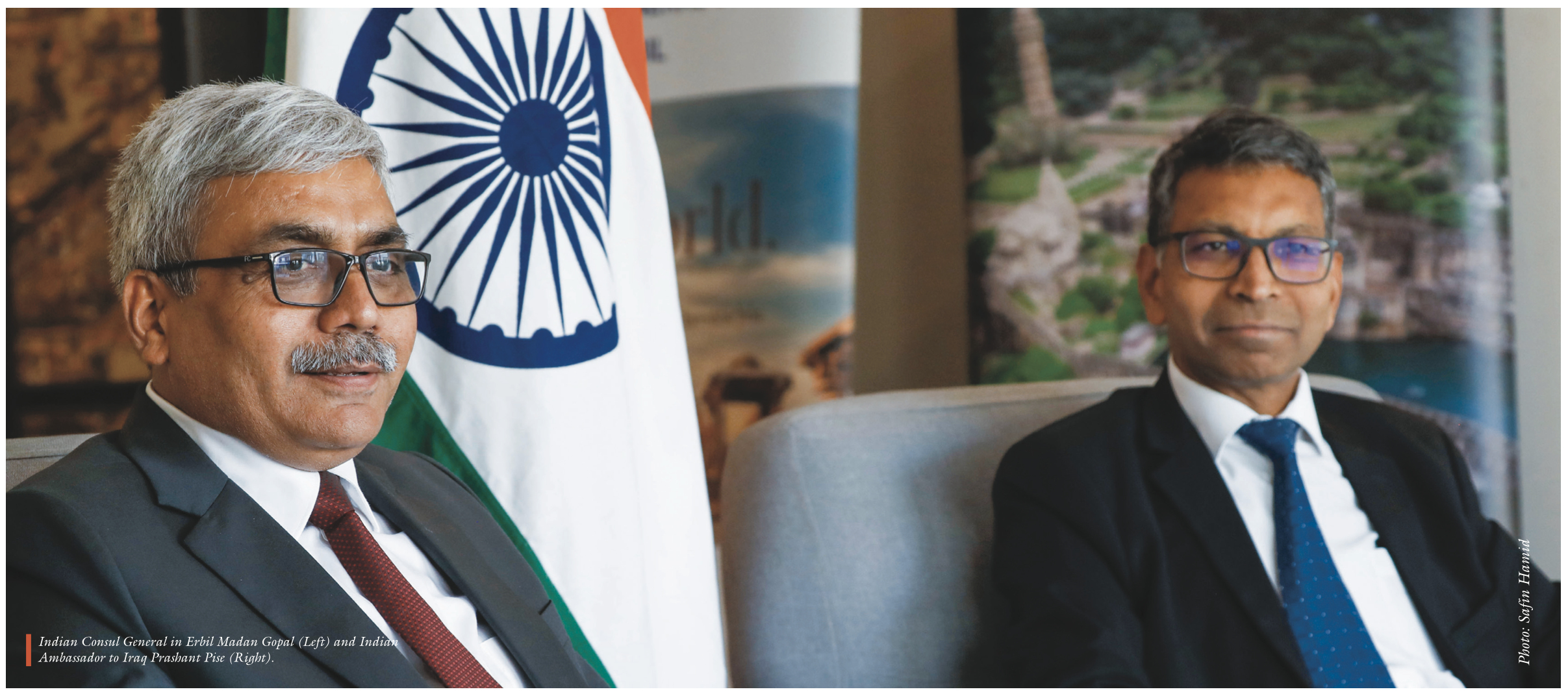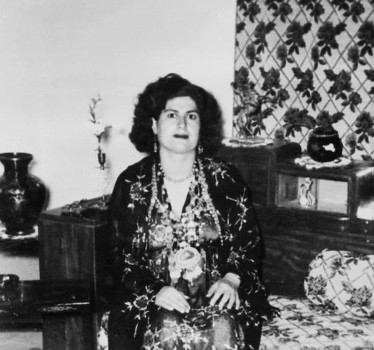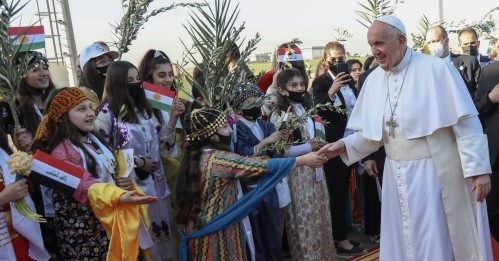As part of its capacity building and development cooperation initiative, the Republic of India announced last month that 50 fully funded scholarships would be made available to students in the Kurdistan Region. In an exclusive interview with Kurdistan Chronicle, India’s Ambassador to Baghdad Prashant Pise and Consul General in Erbil Madan Gopal shed light on these scholarships and India’s broader cultural, economic, and diplomatic relations with the Kurdistan Region.
Ambassador Pise explained that the scholarships are open to undergraduate, master’s, and doctoral students. Students can pursue a variety of subjects, including information technology, engineering, agriculture, water management, humanities, accounting, and pharmacy.
“These are the subjects in which India has extensive knowledge,” Ambassador Pise said. “Students from Kurdistan will have the opportunity to attend India’s most prestigious universities.”
Ambassador Pise proudly cited examples of Indian-origin CEOs leading global corporations, including Sundar Pichai of Google, Satya Nadella of Microsoft, and Arvind Krishna of IBM. “There is a saying that you can’t become CEO of a company in the United States if you are not an Indian,” he remarked with a smile, highlighting the significant presence of Indian talent at the helm of 500 companies worldwide.
“We want students from Kurdistan to benefit from India’s expertise,” he continued. “Our hope is that they will return home and contribute to the development of the Kurdistan Region.”
The ambassador acknowledged that there is not enough awareness in India about Kurdistan and Kurdish people. People in India know about Iraq as an ancient civilization, like India, and about the Tigris and Euphrates Rivers.
“This is a great opportunity for the students to go to India and explain to the people of India what Kurdistan is and who the Kurdish people are,” said Ambassador Pise, adding that some parts of India, such as the northern Himalayas, have a similar geography to Kurdistan.
The academic year in India begins in August, and the application process for the scholarships is already underway. Students from the Kurdistan Region have until May 31 to apply through a dedicated online portal for India’s top five universities. English language proficiency is required for acceptance.
PhD students receiving scholarships will be eligible for a high monthly stipend that allows them to bring their families to India.
Kurdistan already has a strong tradition of sending students to India for higher education. Many choose universities like those in Mumbai, Pune, Kerala, and Delhi. For these students, studying in India represents a chance to experience the country’s rich multicultural heritage, diverse religions, numerous languages, and delicious cuisine.
Ambassador Pise described India as a vibrant tapestry of languages, cultures, and religions. With a population of 1.4 billion, India is now the world’s most populous country, having surpassed China last year. Muslims make up 16% of India’s population, over 200 million people, which is more than five times the entire population of Iraq. This makes India the world’s second-largest Muslim population after Indonesia.
India is also the world’s largest democracy. Nearly one billion people are eligible to vote, and voter turnout is exceptionally high, ranging from 65% to 70%, with around 700 million people participating in elections.

Friendship between the two nations
Since opening its consulate in Erbil in 2016, India has actively fostered a strong friendship with the Kurdistan Region. This bond was further solidified in 2019 with the inauguration of a statue of Mahatma Gandhi, inscribed with his quote “My life is my message,” gifted by India as a token of their friendship.
Consul General Gopal highlighted several cultural initiatives undertaken by India in the Kurdistan Region. These include annual celebrations of Mahatma Gandhi’s birthday featuring Indian musicians, Holi (the spring festival), and the International Day of Yoga.
Furthermore, the Indian government sponsored Kurdish yoga instructors to receive advanced training in India, aiming to certify them as professional instructors in Kurdistan. Consul General Gopal noted the enthusiastic embrace of yoga in Kurdistan, where people are discovering its physical and mental benefits.
In the realm of music and dance, Consul General Gopal mentioned sending a Kurdish dance group last year to participate in the India International Dance Festival and Dussehra celebrations.
“The Kurdish group was able to travel from one corner of India to another in two weeks. Covering 1,500 kilometers, they saw northern India, the middle of India, and then northeastern India, so it was huge what they did,” Consul General Gopal said.
Additionally, a project is underway to donate Indian musical instruments like the tabla and harmonium to the Kurdistan Regional Government Ministry of Culture and Youth.
Cricket holds a special place in this cultural exchange. The large Indian population in Erbil enjoys weekly matches, and the Indian community organizes an annual cricket competition with nine teams. Notably, the community has expressed a desire for the construction of a dedicated cricket pitch in Erbil.
“We are attempting to introduce and engage local people in cricket,” he said.

Strong economic ties
India considers Iraq a key economic partner, importing the majority of its crude oil from the country. “Iraq’s annual oil revenue is $100 billion, and we import roughly 35% of that, valued at $35 billion,” Ambassador Pise stated.
While some non-oil exports like rice and meat are also important, India seeks to diversify its exports, particularly in electrical and digital equipment.
In June, India plans to hold an exclusive Indian trade show in Erbil, with 50 Indian companies representing a variety of sectors.
An increasing number of Kurdish businesses are exploring opportunities in India each year, aided by the country’s simplified visa process. Businessmen can obtain multiple-entry, long-term visas, while patients seeking medical treatment can get a visa within a day. Meanwhile, the Indian consulate actively encourages and supports Kurdistan participation in Indian trade fairs.
Every year, hundreds of Iraqi patients suffering from cancer, heart conditions, neurological disorders, and Down syndrome travel to India for treatment due to its advanced and affordable healthcare system.
While direct flights exist between Baghdad and Basra to India, a direct connection to Erbil is absent. “We’re in talks with both Baghdad and Erbil to establish a direct flight route,” the ambassador said, acknowledging the difficulty that critically ill patients face traveling through other countries.
Ambassador Pise believes India can assist Iraqi hospitals, particularly in management development. He also encourages the Kurdistan Region to attract Indian pharmaceutical companies to set up manufacturing facilities, highlighting the high quality and affordability of Indian medicines.
“Indian-manufactured medicines are high quality and very cheap, and they can be manufactured here and even exported abroad,” said Ambassador Pise.
Qassim Khidhir has 15 years of experience in journalism and media development in Iraq. He has contributed to both local and international media outlets.

